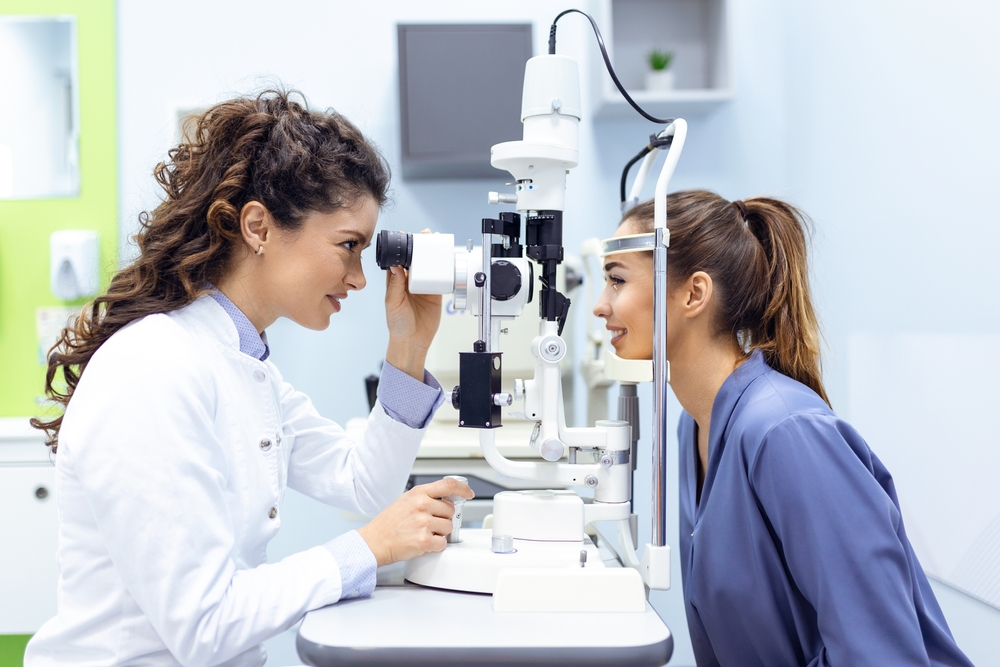
Regular eye examinations are crucial for maintaining optimal vision and eye health. Often underestimated, the significance of this routine healthcare check can't be emphasized enough. Neglecting your ocular health can lead to a range of problems, from minor irritations to severe vision impairment.
What to Expect During a Comprehensive Eye Exam
When you schedule your first comprehensive eye exam, it's natural to feel a bit apprehensive. Knowing what to expect can ease your mind and prepare you for the visit. The examination is a thorough process that evaluates both your vision and the health of your eyes.
Upon arrival, you'll likely fill out paperwork that includes questions about your visual history and any symptoms you're experiencing. Then, a series of tests will be performed. These may include a visual acuity test to measure how clearly each eye is seeing and a refraction assessment to determine the right prescription for corrective lenses.
The exam doesn't stop at vision testing. Your optometrist will also conduct tests to check the intraocular pressure of your eyes, which is vital in screening for glaucoma. Another part of the exam is the slit-lamp examination, where the doctor examines the health of your eyes under high magnification. You may also undergo a retinal examination, which involves dilating the pupils to provide a clearer view of the back of your eye.
Common Eye Conditions Detected During Routine Exams
Routine eye exams are instrumental in identifying various common eye conditions. Some of these can be managed or cured with early detection, while others require ongoing treatment to control their progression. Conditions such as myopia (nearsightedness) and hyperopia (farsightedness) are frequently diagnosed and can easily be corrected with glasses or contact lenses.
More serious conditions like glaucoma, which can lead to irreversible vision loss, can also be detected during routine exams. This condition is known as the 'silent thief of sight' because it often goes unnoticed until significant damage has occurred. Age-related macular degeneration, which affects central vision, is another condition that can be caught early during a comprehensive eye exam.
Even systemic diseases like diabetes and high blood pressure can have manifestations in your eyes. Diabetic retinopathy and hypertensive retinopathy are examples of how these conditions affect your ocular health. By detecting these signs early, you can begin treatment for these systemic issues before they cause severe complications.
The Importance of Early Detection and Intervention
Early detection and intervention are the cornerstones of preserving vision and preventing irreversible eye damage. Many eye diseases progress slowly, and without noticeable symptoms in their early stages, making regular eye exams all the more critical.
When an eye condition is caught early, there's a higher chance of successful treatment and less risk of lasting damage. For example, if glaucoma is diagnosed in its infancy, measures can be taken to lower eye pressure and prevent damage to the optic nerve. Similarly, early signs of cataracts can lead to lifestyle changes or surgery to restore clear vision.
Early intervention is not just about treatment. It's also about adapting to changes in your vision and making the necessary adjustments to your daily life. This might mean using special eyewear, adjusting lighting in your home, or using visual aids. The goal is to maintain the highest possible quality of life, even with vision changes.
Taking Charge of Your Eye Health
Taking charge means being informed, proactive, and diligent about your eye care. It means not waiting for problems to arise before you pay attention to your vision. With regular eye exams, you can ensure that your eyes remain as healthy and functional as possible throughout your life.
Take the step towards safeguarding your vision and schedule your routine eye exam today, visit Generations Family Eyecare at our office in Houston, Texas. We are committed to providing quality eye care services and products for the entire family. Please call (218) 925-7576 book an appointment today.







